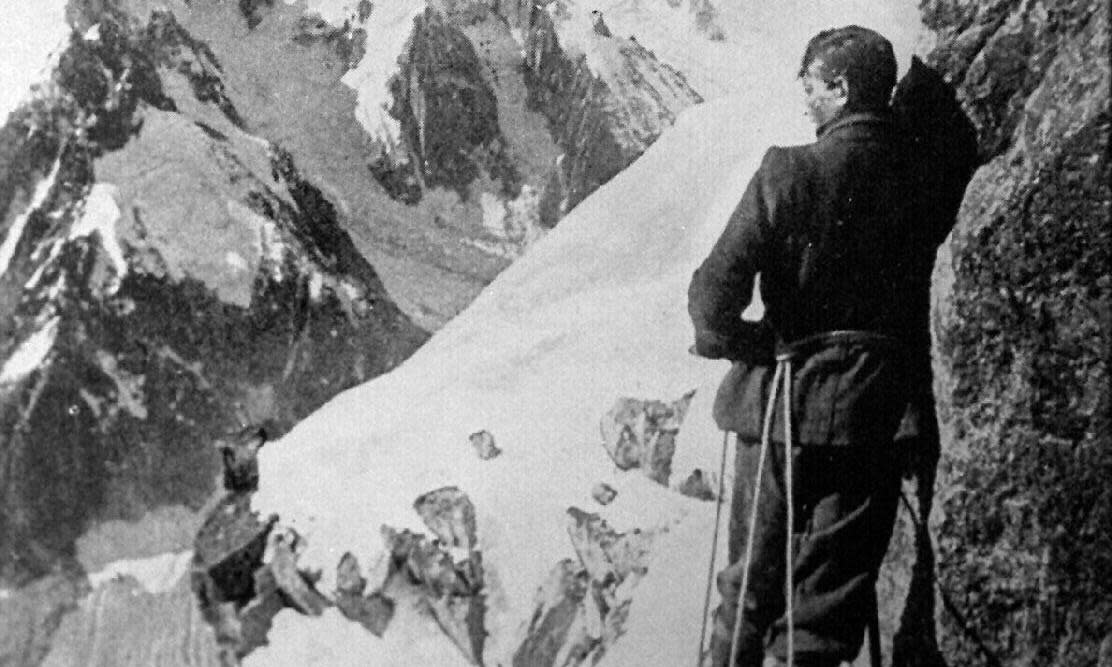George Mallory’s final letters to wife published 100 years after fatal Mount Everest climb

It was an expedition that began with an air of excitement but ended in tragedy: during their attempt to reach the summit of Everest in the summer of 1924, British mountaineer George Mallory and his colleague Sandy Irvine disappeared – their success, or not, still shrouded in mystery.
Now 100 years after the fatal climb, digitised copies of many of Mallory’s letters, in particular those exchanged with his wife, Ruth, are to be made public by his alma mater, Magdalene College, Cambridge.
The result is unprecedented access to Mallory’s mind and marriage right up to his death.
Katy Green, the college’s archivist, said that while many academics have previously pored over the letters that relate to Everest, the digitised correspondence covers a wide range of topics – including Mallory’s experiences during the first world war, and his visit to the US in 1923 in which he quaffed Tom Collins cocktails despite the prohibition.
Green said: “When you look at them, I find what’s exciting is that you have that direct connection with the letter, with that person. You can hear their voice, you have a little snapshot into their marriage, their little arguments and everything. So you haven’t got an historian interpreting it for you.”
In one letter, written on the first day of the Somme in July 1916, Mallory sets out to his wife what should happen to the religious upbringing of his daughter Clare should he be killed, adding that he is writing in the “din of battle – a battle of which we see, as it were, only the rim of a seething cauldron.”
In another, he describes how two young men were walking just behind him on their way back from the trenches when they were killed by a shell.
Yet amid the horror of the war were more mundane matters, be it a plea for apples or Mallory’s refusal to accept Ruth’s offer of a hot-water bottle, stating “it would make me feel a pig”.
Green added that there is much to be gleaned from Ruth’s letters too, particular when it comes to women’s history.
“It’s very rare that we get that real insight into what women’s lives were like,” she said.
Among the events recounted by Ruth was the birth of ten piglets one evening. Two died, and one was found cold and close to death. However, after being nursed with hot milk and a spell in a warm oven – with the door left open and a hot-water bottle on its back – the creature rallied and within an hour was “quite lively and well”.
The letters also touch on the lives of other luminaries who knew Mallory, including Lytton Strachey, Rupert Brooke and Robert Graves.
“He is very, very queer,” Mallory wrote of Strachey when the latter came to stay while Mallory was teaching at Charterhouse School. “Not to me of course because I know him as a friend – but to the world.”
Yet Mallory’s fate is inescapable.
In a letter written during the British Mount Everest reconnaissance expedition in 1921, he describes his excitement.
“My darling this is a thrilling business altogether – I can’t tell you how it possesses me and what a prospect it is. And the beauty of it all!” Mallory writes to Ruth.
Green said: “You do get sucked in a bit, if you read all the letters, to their lives. And you think ‘oh George don’t go!’ You know he’s going to die.”
It was three years later, on the third attempt of the British Mount Everest expedition to scale the mountain, that Mallory and Irvine disappeared.
Among letters of condolence written to Ruth in the aftermath of the tragedy is a message of sympathy passed on from King George V, while the digital archive also includes three letters discovered in a handkerchief when Mallory’s body was found, buried by snow, in 1999.
But perhaps the most poignant inclusion of all is Mallory’s final letter to Ruth, written just days before his death.
“It is 50 to 1 against us but we’ll have a whack yet & do ourselves proud,” he wrote. “Great love to you. Ever your loving, George.”


